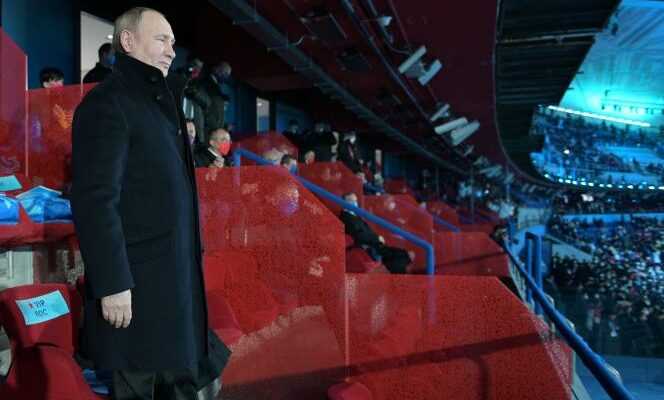At the end of March, a few weeks after the Winter Olympics, to see the “cream” of world skating, you had to be in Saransk. The capital of the Republic of Mordovia, Russia, hosted the second edition of the Pervy Kanal Figure Skating Cup. On display, between March 25 and 27: the Russian Olympic champion in Beijing, Anna Chtcherbakova, and the prodigy Kamila Valieva (accused of doping during the Chinese fortnight).
The event, organized by the Russian federation, however, went almost unnoticed: at the same time, the world championships in the discipline were disputed in Montpellier (from March 21 to 27). The concomitance owed nothing to chance. For Russia, it was a question of showing that it could continue to exist, despite its exclusion from sports competitions, decided by the majority of international federations, after the invasion of Ukraine.
“An instrument of social control”
A week before the meeting in Saransk, Moscow had organised, in response to its ousting from the Paralympic Games (from March 4 to 13), a sports competition in Khanty-Mansiysk (Western Siberia), bringing together para-athletes from Belarus, from Armenia, Kazakhstan and Tajikistan. The event, dubbed “We Are Together: Sport”, had no other purpose, according to Russian Sports Minister Oleg Matytsin, than to prove to Westerners that Russia is “a strong and self-sufficient power”.
Prove it to Westerners, but especially to its own population, says Lukas Aubin, associate researcher at the Institute of International and Strategic Relations (IRIS). “It’s a way for the regime to save face and secure the support of the population. Sport has been, for more than twenty years, for Putin, an instrument of propaganda and social control.exposes the author of Sportokratura under Vladimir Putin: a geopolitics of Russian sport (Breal, 2021).
Sport is also, for Russia, a weapon at the service of its “soft power”, of its state power. Now unable to exercise it on the international scene, the Kremlin uses it within the limits of the Russian Federation, or even a little beyond. Because sport is a way for Moscow to count its allies and show off its chest in front of Westerners, a way of saying: “You see, we don’t need you”, especially in disciplines where its athletes excel.
The omnipotence of the IOC
Could Russia, by organizing alternative competitions, go so far as to create a new world sports order, independent of the International Olympic Committee (IOC) and the major international federations? “With our partners, we will develop a system, which will set the standard for all sports. I think it’s time to shape our vision for the future of the community”suggested Oleg Matytsine on the sidelines of “We are together: sport”.
You have 58.79% of this article left to read. The following is for subscribers only.
